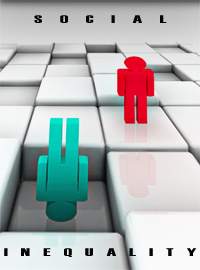| Ruinous 'Compassion' |
 |
|
By Thomas Sowell
Tuesday, March 17 2015 |
It is fascinating to see brilliant people belatedly discover the obvious — and to see an even larger number of brilliant people never discover the obvious. A recent story in a San Francisco newspaper says that some restaurants and grocery stores in Oakland's Chinatown have closed after the city's minimum wage was raised. Other small businesses there are not sure they are going to survive, since many depend on a thin profit margin and a high volume of sales. At an angry meeting between local small business owners and city officials, the local organization that had campaigned for the higher minimum wage was absent. They were probably some place congratulating themselves on having passed a humane "living wage" law. The group most affected was also absent — inexperienced and unskilled young people, who need a job to get some experience, even more than they need the money. It is not a breakthrough on the frontiers of knowledge that minimum wage laws reduce employment opportunities for the young and the unskilled of any age. It has been happening around the world, for generation after generation, and in the most diverse countries. It is not just the young who are affected when minimum wage rates are set according to the fashionable notions of third parties, with little or no regard for whether everyone is productive enough to be worth paying the minimum wage they set. You can check this out for yourself. Go to your local public library and pick up a copy of the distinguished British magazine The Economist. Whether it is the current issue or a back issue doesn't matter. Spain, Greece and South Africa will be easy to locate in the table near the back, which lists data for various countries. Just look down the unemployment column for countries with unemployment rates around 25 percent. Spain, Greece and South Africa are always there, whether or not there is a recession. Why? Because they have very generous minimum wage laws. While you are there, you can look up the unemployment rate for Switzerland, which has no minimum wage law at all. Over the years, I have never seen the unemployment rate in Switzerland reach as high as 4 percent. Back in 2003, The Economist magazine reported: "Switzerland's unemployment neared a five-year high of 3.9% in February." In the United States, back in what liberals think of as the bad old days before there was a federal minimum wage law, the annual unemployment rate during Calvin Coolidge's last four years as president ranged from a high of 4.2 percent to a low of 1.8 percent. Low-income minorities are often hardest hit by the unemployment that follows in the wake of minimum wage laws. The last year when the black unemployment rate was lower than the white unemployment rate was 1930, the last year before there was a federal minimum wage law. The following year, the Davis-Bacon Act of 1931 was passed, requiring minimum wages in the construction industry. This was in response to complaints that construction companies with non-union black construction workers were able to underbid construction companies with unionized white workers (whose unions would not admit blacks). Looking back over my own life, I realize now how lucky I was when I left home in 1948, at the age of 17, to become self-supporting. The unemployment rate for 16- and 17-year-old blacks at that time was under 10 percent. Inflation had made the minimum wage law, passed ten years earlier, irrelevant. But it was only a matter of time before liberal compassion led to repeated increases in the minimum wage, to keep up with inflation. The annual unemployment rate for black teenagers has never been less than 20 percent in the past 50 years, and has ranged as high as over 50 percent. You can check these numbers in a table of official government statistics on page 42 of Professor Walter Williams' book Race and Economics. Incidentally, the black-white gap in unemployment rates for 16-year-olds and 17-year-olds was virtually non-existent back in 1948. But the black teenage unemployment rate has been more than double that for white teenagers for every year since 1971. This is just one of many policies that allow liberals to go around feeling good about themselves, while leaving havoc in their wake. ---------------------------------------------------------------------------------------------------------------------------------------- Thomas Sowell is a senior fellow at the Hoover Institution, Stanford University. |
Related Articles : |
























